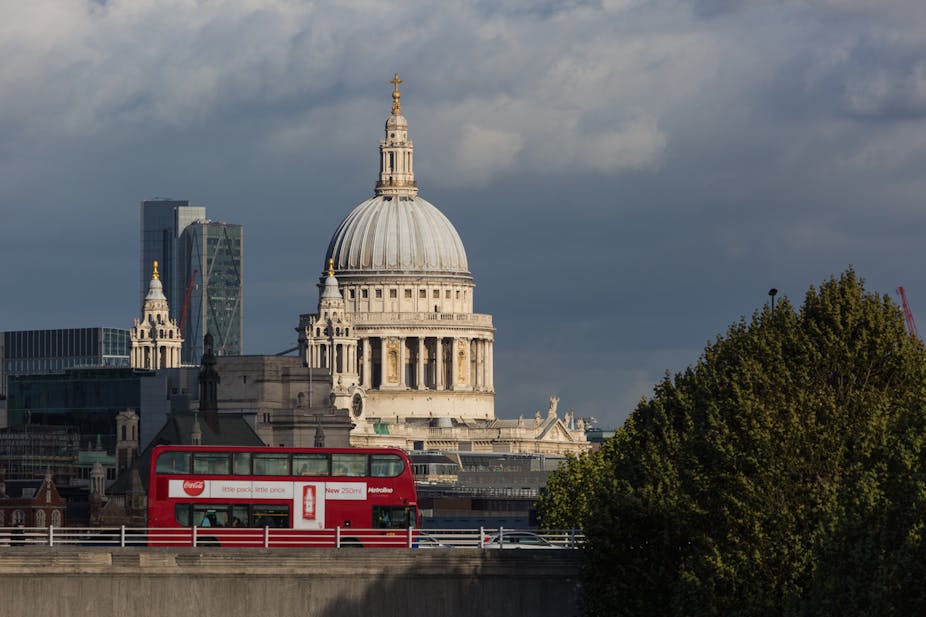When prime minister David Cameron said recently that Britain was a “Christian country” and we shouldn’t be afraid to say so, his words sparked a furore. While the idea of “Christian Britain” is largely imaginary for many, it remains entangled with the history of religious education. Such debates are now resurfacing amid a call from within the Church of England itself – by the Bishop of Oxford – to abandon the law requiring Christian worship in state schools.
It was a Times leader of the 17 February, 1940, “Religion and National Life”, which set in train a flurry of opinion in its letters columns over the following months. It reflected a majority view that religious education (including school worship) was vital to the future spiritual health of the nation.
In the context of World War II, it somehow made sense to assert:
It will be of little use to fight, as we are fighting today, for the preservation of Christian principles, if Christianity itself is to have no future, or at immense cost to safeguard religion against attack from without if we allow it by neglect to be from within.
It was oft-repeated rhetoric like this which fuelled the imagination of a “Christian Britain”, and enabled a direct link between the national cause in war, Christianity, and British identity. Soon afterwards the BBC began its long-running Religious Service for Schools, as well as a religious epilogue to its Children’s Hour. Ultimately, such rhetorical optimism led to the religious clauses of the 1944 Education Act, which included making collective worship in maintained schools the obligatory beginning to every school day.
Post-war reality check
The vision of “rechristianising” the masses through the school system soon hit against some hard realities. The resources necessary – qualified and sympathetic Christian teachers – were unavailable to plant the seed to gather the imagined harvest. Any latent Christian sentiment fostered by the war, clerical rhetoric and National Days of Prayer, was soon dissipated by the relative comforts of peace, and the advance of secularising trends.
By the 1960s, even leading clerics who had championed the cause of compulsory worship in wartime had to conclude that perhaps they had been too optimistic. One, the sometime bishop of Bristol, Frederick Cockin, pointed out that though the 1944 Act had stipulated that religious worship should take place daily, it nowhere required that it be Christian. He went on, somewhat ruefully to say: “we shall do no service to the Christian position by trying to insist on a position of privilege”.
Even so, whatever form “worship” might take – and Cockin remained committed to its legal standing – he argued its value to the school community needed to provide the substance of the rationale for its place in the school day. Diverse perspectives of staff and students on religion also needed to be acknowledged and taken into account: Christian allegiance should not be assumed.
By the 1970s, it had become even clearer that educational reasons alone could provide justification for continuing with the practice of compulsory school worship. It seemed no longer justifiable to make a key aim of worship to foster Christian belief.
In 1975, John Hull pronounced school worship “dead” in its Christianising form, which Hull argued was “indoctrination”. Instead, in his book School Worship: an obituary, he proposed certain reforms, effective changes of tone and emphasis. These included that “assemblies” would encourage a reflective approach to living, demonstrate democratic values, and provide an objective experience of worship, without necessarily expecting children to give cognitive assent. In an increasingly multi-faith Britain, such proposals made pragmatic sense, winning widespread assent amongst educators, both Christian and not.
Broadly Christian character
However, the liberalising trends represented by Hull’s intervention suffered at the hands of cultural conservatives embued in the politics of the Thatcher era who were concerned to preserve posited British Christian identity. The 1988 Education Reform Act can be read in this vein.
Although it relaxed the demand that the whole school meet together for the daily act of worship, it underlined that worship should be of a “broadly Christian character” (except where a school successfully appeals for exemption from doing so). This was an even more out-of-place expectation than it had been in 1944.
Schools and teachers have since been forced by the realities of cultural circumstance into generously and creatively interpreting the more stringent legal requirement for a mainly “Christian” worship. They often use the slot to unify the school community, nurture a school ethos, and reflect upon moral and spiritual issues, using a range of religious and non-religious resources to do so. Far from being meaningless, the majority of schools work hard to ensure that worship is significant for children.
What else to worship?
School worship has been made a feature of the totem that is the British identity and values debate. Fears of its erosion are implicated in a sense of loss of an imagined past. If Britain were ever Christian, it was not so in any straightforward and uncomplicated way, whether by measures of churchgoing, popular sentiment or demonstrations of civil religiosity.
The descriptor “Christian” at an individual level belies a plethora of motives, experiences, beliefs and loyalties. At a rhetorical level, the notion of “Christian Britain” has often been deployed to advantage certain cultural causes or to nation-build.
Harking back to Cockin, if Christianity does have particular historical-cultural import, should this equate to any claim for continuing special treatment in law or in education?
If the “Christian” requirement were to be removed, following a recent call by the National Governors’ Association, and now the Bishop of Oxford, what (if anything) would fill the void? What would children be required to “worship” instead? Perhaps the very thing protecting the current collective worship slot from being appropriated for alternative tub-thumping political purposes is that it remains of the character of a spiritual religious practice.

